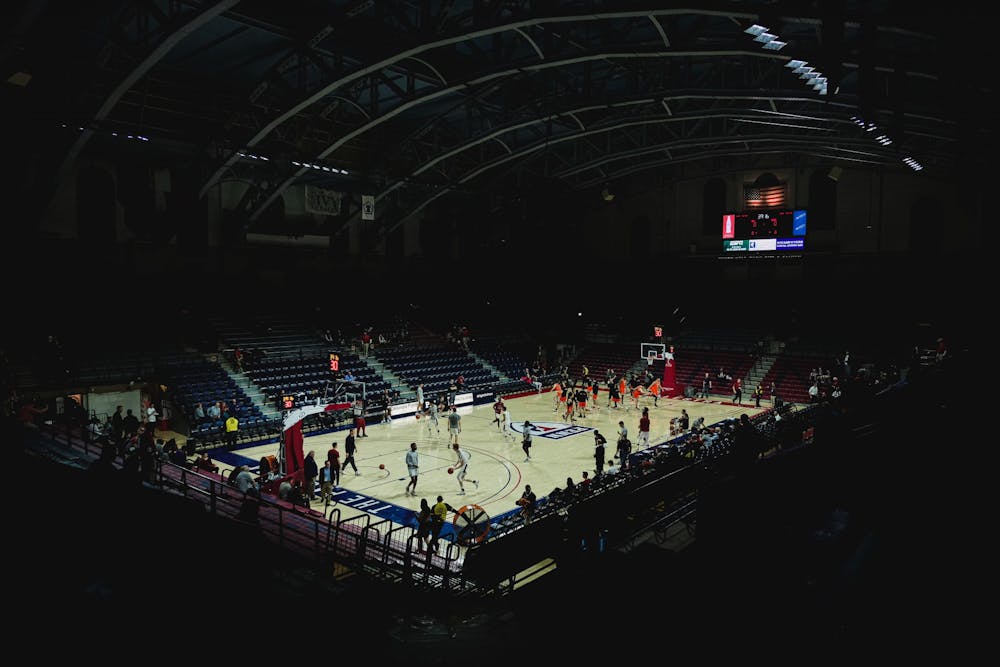
Penn men’s basketball pulled off an impressive win over Brown this weekend to keep its Ivy League Tournament hopes alive. Despite all the passion and drive that the members of the team put forth every season, there will be more than just Brown’s tough perimeter defense getting in their way for the coming years.
Now, the team has to deal with NCAA sanctions, too.
Jerome Allen had an enormous impact on the Penn men’s basketball program, both on and off the court. He started as one of the greatest Penn basketball players in the school's history. He then had an extensive coaching career at Penn, later landing a job in the NBA for the Boston Celtics.
But his influence of late has been decidedly negative. Last year, he was found guilty of taking $300,000 in bribes in order to get a student accepted to Penn by recruiting him onto the basketball team.
Although Allen avoided jail time in the court case, the NCAA investigated and decided to punish Allen and the current men’s basketball program. While Allen’s actions are worthy of punishment, the NCAA should consider who is actually being punished when they levy sanctions against the team itself.
Last Wednesday, the NCAA announced a two-year probation and a $5,000 fine for the Athletics Department, as well as a three-week ban on all recruiting communication this spring and a seven-day reduction in allowable recruiting-person days during the 2019-20 school year. While the sanctions against the school and the Athletics Department, which The Daily Pennsylvanian Editorial Board has argued needs better oversight to prevent future fraudulent activities, are warranted, those against the team are not.
There is no evidence that anyone on the current men’s basketball team was involved in the violations committed by Allen. Allen is now an assistant coach on the Celtics, and former assistant basketball coach Ira Bowman, who was also implicated in the violations, is currently an assistant coach at Auburn University. Current head coach Steve Donahue was hired in 2015 right after Allen was fired, so there’s no reason to believe he had any knowledge of the violations. Further, all of the players currently on the team were in high school at the time of the violations.
The sanctions against the team do not make any sense given this context. This is particularly evident given the fact that, unlike most cheating in college basketball, Allen’s actions did not even give Penn a competitive advantage. Recruiting someone who was not good enough to play basketball at the college level is certainly not advantageous, and the student in question did not even appear on the roster at Penn. With no one left to punish and no wrong to right, why punish the team at all?
Ivy League basketball seasons are always full of strong teams and games that are often decided by slim margins. Even relatively minor sanctions could tip the balance and keep Penn from conference titles in the future.
Given that the players and coaches who will lose those championships did not commit any violations, the NCAA’s current sanctions are reprehensible. The NCAA needs to take responsibility of enforcing the rules more seriously and punish the programs and individuals that actually deserve to be punished.
Editorials represent the majority view of members of The Daily Pennsylvanian, Inc. Editorial Board, which meets regularly to discuss issues relevant to Penn's campus. Participants in these meetings are not involved in the reporting of articles on related topics.
The Daily Pennsylvanian is an independent, student-run newspaper. Please consider making a donation to support the coverage that shapes the University. Your generosity ensures a future of strong journalism at Penn.
Donate







